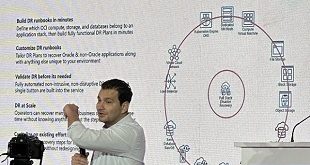
By Andrew M. Mwenda
Mugisha Muntu’s challenge to Kizza Besigye for the presidential candidature of FDC reveals the major dilemma facing the opposition in Uganda. Besigye has twice demonstrated extraordinary courage by challenging President Yoweri Museveni. Yet the factors that made him galvanise Ugandans in support of his candidature also carry its fundamental limitation.

This discussion will deliberately skirt the likely implications of the candidatures of Olara Otunnu and Norbert Mao, the two politicians representing Uganda’s oldest parties ‘ UPC and DP. For now I will focus on Besigye and Muntu, and reserve Otunnu and Mao for another day.
Museveni has carefully cultivated his brand as an African strongman always willing to use ‘his’ army to ‘crash’ any opponent ‘ violent or pacifist. To credibly challenge him has always required his opponent to demonstrate a strong will, a tough and resilient spirit, and an ability to rally support of the military.
Besigye embodied this profile; his record as a military man reinforced his credentials as the most credible challenger. His surprise announcement in 2000 that he was going to take on Museveni and his dramatic and courageous return from exile in 2005 revealed both the iron and steel inside the man.
Indeed, in both campaigns, Besigye talked tough and sounded belligerent. He claimed that 90% of the army was behind him, threatened army generals and powerful NRM politicians with prosecution, if he won, and presented himself as the man for this task. This reinforced his reputation as a hammer to knock Museveni out of power, a factor that galvanised fanatical support from millions of the discontented.
However, this positioning of his brand also carried the fundamental limitation of Besigye’s candidature. First, it forced Museveni to try and prove that the army was behind the president. So, in 2000-01, he unleashed the army against Besigye and his supporters. Soldiers were deployed everywhere, including polling stations. When Besigye complained against this, Museveni’s handlers pointed out that the soldiers were ‘Besigye’s supporters’ by his own account. Why is he afraid of them?
Second, because Museveni has been in power for long, many interests have grown powerful and consolidated in politics: the army, the bureaucracy, and the private sector. Dislodging an entrenched regime like this requires finding some accommodation with such powerful interests; you have to make tactical compromises to win your strategic objective.
This is the lesson from Nelson Mandela and the democratic transition in South Africa in 1994, Robert Mugabe and the independence of Zimbabwe in 1980 and Gen. Augusto Pinochet and the democratic transition in Chile in 1990. In all these cases, those who sought change offered credible structural guarantees to entrenched economic, military and others interests that had consolidated during the oppressive years.
By threatening retribution against senior army officers and powerful NRM insiders, Besigye galvanised the base of the opposition to Museveni. But he also rallied powerful interests to defend the status quo. Those who felt threatened by change were willing to do many things to defend Museveni’s stay in power.
Third, although there was strong hostility to Museveni in 2000 and 2005, there were equally many people who were undecided. Besigye’s style tended to mobilise and motivate the base of the opposition but failed to persuade the undecided. He was therefore unable to grow his constituency. I suspect that a more centrist candidature would have won over the undecided but most likely at the price of demoralising the base.
This is where Muntu’s candidate becomes at once timely and untimely. He is the quintessential moderate. His personality has the capacity to reassure many NRM and UPDF insiders, including Museveni personally, that they can leave power without going to jail. Yet precisely because he is not belligerent, Muntu cannot motivate passion among many of his followers to be fanatical about his candidature.
Two things define a campaign: persuasion and motivation. Persuasion is most effective when appealing to the undecided, motivation when appealing to your base. Since 2000, the undecided middle has been shrinking. If they constituted 40% in 2000, they could have fallen to 20% by 2005 due to the removal of term limits. The battles between Museveni and Mengo have shrunk the undecided even further to around 6%.
Therefore, what Muntu has in large measure was most valuable in 2000 more than today. This makes Besigye’s candidature even more necessary today than it was in 2000 or 2005. For FDC grassroots, Muntu is seeking to remove Besigye at a time when the opposition needs him most. The sacrifices Besigye has made in challenging Museveni have built for him such a powerful reputation that it is difficult to defeat him in FDC. Muntu may therefore attract the support of FDC leaders, but not its rank and file.
Yet given the depth of the polarisation in Uganda today, the opposition need a candidate who can make it possible for key NRM and UPDF insiders to consider a peaceful transfer of power. A strong Besigye candidature is what Museveni needs to rally his own will and the fanaticism of his supporters to dig in. But this would turn the election into a bloody affair; the only acceptable outcome for the opposition that Museveni can buy being what has happened in Kenya and Zimbabwe.
Therefore, while Besigye’s belligerence and tough talk appeals to the masses below, Muntu’s sober and calm approach appeals to elites above. True, the opposition needs the masses to win, but their numbers can only bring about change if their voice finds the organised political expression which only elites can provide.
Most voters are now decided either for or against Museveni leaving few in the undecided column. So the opposition needs a candidate who can motivate its base to turn up and vote, which makes Besigye the best candidate. But it also needs a candidate who will reassure those most threatened by change ‘ the most powerful politically ‘ that they will not be persecuted if they hand over power.
While Muntu provides the necessary reassurance, he may achieve this at the price of removing vital enthusiasm from the opposition’s ranks. Therefore, Besigye is the best candidate for the opposition, Muntu the best candidate for Uganda.
amwenda@independent.co.ug
 The Independent Uganda: You get the Truth we Pay the Price
The Independent Uganda: You get the Truth we Pay the Price



